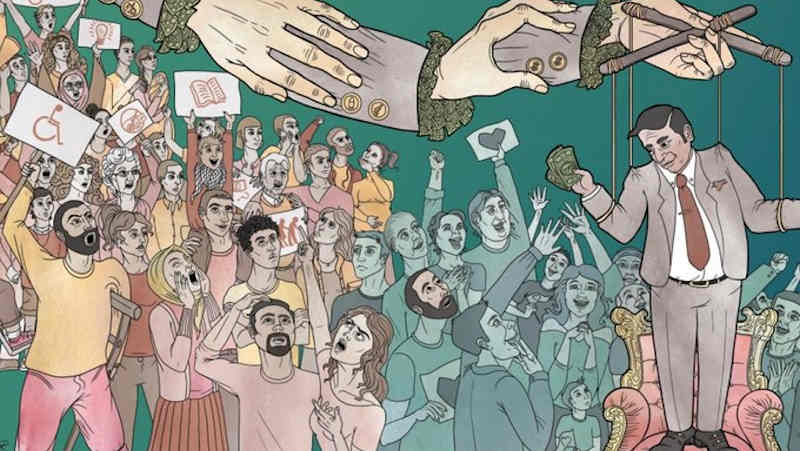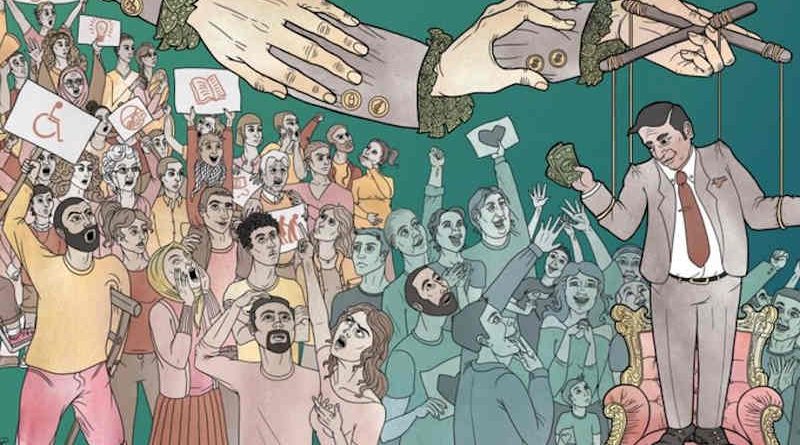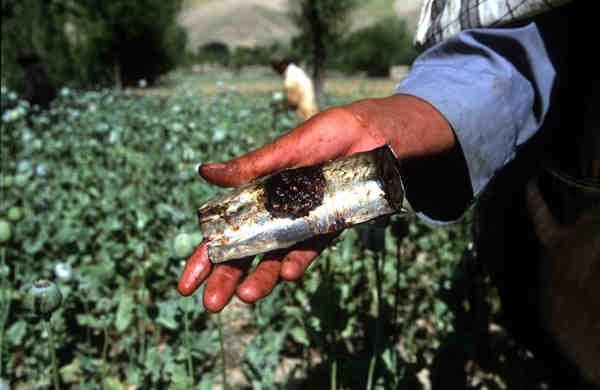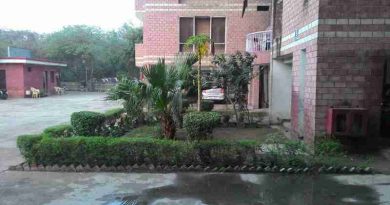Corruption Increasing in the Middle East and North Africa: Survey

A new report by Transparency International reveals that only 28 per cent of citizens in six countries in the Middle East and North Africa think their government is doing a good job at fighting corruption.
In a region that has seen mass protests against corruption in 2019, two in every three (65 per cent) citizens think that corruption increased in the previous 12 months.
The report, Global Corruption Barometer (GCB) — Middle East and North Africa, released Wednesday (December 11) reveals that more than one in five people (22 per cent) who accessed public services, such as health care and education, paid a bribe in the previous year. This is equivalent to approximately 11 million people in the six countries surveyed.
In addition, in Jordan, Lebanon, and Palestine, more than a third of citizens or approximately 3.6 million people, also used their personal connections, or what is known regionally as wasta, to get the services they needed.
For the first time, the survey asked respondents in Jordan, Lebanon, and Palestine about their experiences of sexual extortion, or sextortion, a form of corruption in which sex is the currency of the bribe. Shockingly, according to the survey, one in five citizens experiences sextortion when accessing a government service, or knows someone who has.
“Corruption disproportionately affects the most vulnerable people, depriving them of free and equal access to public services,” said Delia Ferreira Rubio, Chair of Transparency International. “People taking to the streets to speak out against corruption is a sign that regular channels for demanding accountability and transparency are inadequate.”
ANTI-CORRUPTION MAGAZINE
| Download All Issues of The Integrity Bulletin | |||
| October 2018 | November 2018 | December 2018 | January 2019 |
| February 2019 | March 2019 | April 2019 | May 2019 |
| June 2019 | July 2019 | August 2019 | September 2019 |
| October 2019 | November 2019 | December 2019 | |
According to the survey, 44 per cent of people think that most or all parliamentarians and government officials are involved in corruption. This may be why 60 per cent of citizens also report dissatisfaction with how democracy works in their country; and why more than 80 per cent of people in Lebanon, Jordan, and Palestine believe government corruption is a big problem.
Despite these grim results, half of citizens still believe that ordinary people can make a difference in the fight against corruption. Governments in the Middle East and North Africa must show genuine political will to fight corruption and take steps to:
- Strengthen electoral integrity to allow for fair and democratic elections;
- Empower whistleblowers, civil society, and media;
- Reduce and prevent wasta;
- Strengthen judicial independence and promote separation of powers;
- Recognize and address specific gendered forms of corruption; and
- Improve transparency and access to information.
Through chapters in more than 100 countries and an international secretariat in Berlin, Transparency International says it has been leading the fight against corruption for the past 26 years.
The 10th edition of the Global Corruption Barometer (GCB) – Middle East and North Africa, published by Transparency International, is based on fieldwork conducted between March and August 2018 in North Africa and between August and October 2019 in the Middle East.
More than 6,600 citizens were surveyed in Jordan, Lebanon, Morocco, Palestine, Sudan, and Tunisia. The survey was fielded by Afrobarometer, Nama Strategic Intelligence Solutions, Statistics Lebanon and Qiyas Center for Polling.





